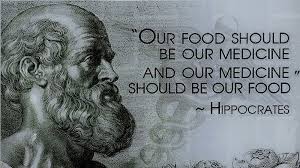Nutrients
“Nutrients are the compounds in food that provide us with energy that facilitates repair and growth and helps to carry out different life processes.”
Not all nutrients provide energy but are necessary for some form or the other. These nutrients are divided into two categories:
- Macronutrients, which are required by the body in large amounts.
- Micronutrients, which are required by the body in small amounts.
Above nutrients could be obtained from the environment. Macronutrients provide energy to a living being for the function of the metabolic system. They provide massive energy has it is converted used to obtain energy. Macronutrients include fats, proteins, and carbohydrates.
Micronutrient provides essential components for metabolism to be carried out. They also build and repair damaged tissues in order to control the body process. Micronutrients include calcium, iron, vitamins, iron, minerals and vitamin C.
Mission
We are going to put the details about the various Nutrients readily available in the nature and how we can use it for our health.
Vision
Health in your hands is an effort to inform that keeping a good health is very easy. Only thing needs to be understood is the effects and benefit of the daily food we consume.
Values
We promote the best products available in the country in the raw form and without any processing.

“The doctor of the future will give no medication but will interest his patients in the care of the human frame, diet and in the cause and prevention of disease”—Thomas A. Edison (1847-1931)”

A few attractive lines that reveal your expertise and experience. Tell people what you are good at. You can focus on a few features and qualities that will create a good impression on all those who visit your website. Tell them what you are good at.
Why Choose Us
Let us now emphasize on the main benefits that customers will get by your company.
Vitamins and Minerals
Vitamins and minerals are micronutrients required by the body to carry out a range of normal functions. However, these micronutrients are not produced in our bodies and must be derived from the food we eat.
Vitamins
Vitamins are organic substances that are generally classified as either fat soluble or water soluble. Fat-soluble vitamins (vitamin A, vitamin D, vitamin E, and vitamin K) dissolve in fat and tend to accumulate in the body. Water-soluble vitamins (vitamin C and the B-complex vitamins, such as vitamin B6, vitamin B12, and folate) must dissolve in water before they can be absorbed by the body, and therefore cannot be stored. Any water-soluble vitamins unused by the body is primarily lost through urine.
Minerals
Minerals are inorganic elements present in soil and water, which are absorbed by plants or consumed by animals. While you’re likely familiar with calcium, sodium, and potassium, there is a range of other minerals, including trace minerals (e.g. copper, iodine, and zinc) needed in very small amounts.
Proper Take Care
An attractive line about the heading above.

Vitamins and minerals are micronutrients required by the body to carry out a range of normal functions. However, these micronutrients are not produced in our bodies and must be derived from the food we eat.
A diet that includes plenty of fruits, vegetables, whole grains, good protein packages, and healthful fats should provide most of the nutrients needed for good health.
Vitamins and minerals are nutrients your body needs in small amounts to work properly and stay healthy.
Vitamin A
Vitamin A, also known as retinol, has several important functions.
These include:
- helping your body’s natural defence against illness and infection (the immune system) work properly
- helping vision in dim light
- keeping skin and the lining of some parts of the body, such as the nose, healthy.
There are many different types of vitamin B.
This section has information on:
- thiamin (vitamin B1)
- riboflavin (vitamin B2)
- niacin (vitamin B3)
- pantothenic acid
- vitamin B6
- biotin (vitamin B7)
- folate and folic acid
- vitamin B12
Thiamin (vitamin B1)
Thiamin, also known as vitamin B1, helps:
- the body break down and release energy from food
- keep the nervous system healthy
Riboflavin (vitamin B2)
Riboflavin, also known as vitamin B2, helps:
- keep skin, eyes and the nervous system healthy
- the body release energy from food
Niacin (vitamin B3)
Niacin, also known as vitamin B3, helps:
- the body release energy from food
- keep the nervous system and skin healthy
Pantothenic acid
Pantothenic acid has several functions, such as helping the body to release energy from food.
Vitamin B6
Vitamin B6, also known as pyridoxine, helps:
- the body to use and store energy from protein and carbohydrates in food
- the body form haemoglobin, the substance in red blood cells that carries oxygen around the body.
Biotin (vitamin B7)
Biotin is needed in very small amounts to help the body make fatty acids.
The bacteria that live naturally in your bowel are able to make biotin, so it’s not clear if you need any additional biotin from the diet.
Biotin is also found in a wide range of foods, but only at very low levels.
Folate and folic acid
Folate is a B vitamin found in many foods. The manmade form of folate is called folic acid.
Folate is also known as folacin and vitamin B9.
Folate helps:
- the body form healthy red blood cells
- reduce the risk of birth defects called neural tube defects, such as spina bifida, in unborn babies.
Vitamin B12
Vitamin B12 is involved in helping the body:
- make red blood cells and keeping the nervous system healthy
- release energy from food
- use folate
Vitamin C, also known as ascorbic acid, has several important functions.
These include:
- helping to protect cells and keeping them healthy
- maintaining healthy skin, blood vessels, bones and cartilage
- helping with wound healing.
Vitamin D
Vitamin D helps regulate the amount of calcium and phosphate in the body.
These nutrients are needed to keep bones, teeth and muscles healthy.
A lack of vitamin D can lead to bone deformities.
Vitamin E
Vitamin E helps maintain healthy skin and eyes, and strengthen the body’s natural defence against illness and infection (the immune system).
Vitamin K
Vitamin K is a group of vitamins that the body needs for blood clotting, helping wounds to heal.
Calcium
Calcium has several important functions.
These include:
- helping build bones and keep teeth healthy
- regulating muscle contractions, including your heartbeat
- making sure blood clots normally.
Iodine
Iodine helps make thyroid hormones, which help keep cells and the metabolic rate (the speed at which chemical reactions take place in the body) healthy.
Iron
Iron is important in making red blood cells, which carry oxygen around the body.
As well as vitamins and more common minerals, a healthy diet includes many other nutrients.
This section has information on:
- beta-carotene
- chromium
- cobalt
- copper
- magnesium
- manganese
- molybdenum
- phosphorus
- potassium
- selenium
- sodium chloride (salt)
- zinc
Beta-carotene
Beta-carotene gives yellow and orange fruit and vegetables their colour. It’s turned into vitamin A in the body, so it can perform the same jobs in the body as vitamin A.
Chromium
It is a metallic element that people need very small quantities.
There is limited information about the exact amount of chromium required, and what it does, as studies have so far produced conflicting results.
Copper
Copper helps:
- produce red and white blood cells
- trigger the release of iron to form haemoglobin, the substance that carries oxygen around the body
It’s also thought to be important for infant growth, brain development, the immune system and strong bones.
Magnesium
Magnesium is a mineral that helps:
- turn the food we eat into energy
- make sure the parathyroid glands, which produce hormones important for bone health, work normally.
Manganese
Manganese helps make and activate some of the enzymes in the body. Enzymes are proteins that help the body carry out chemical reactions, such as breaking down food.
Molybdenum
Molybdenum helps make and activate some of the proteins involved in chemical reactions (enzymes) that help with repairing and making genetic material.
Phosphorus
Phosphorus is a mineral that helps build strong bones and teeth, and helps release energy from food.
Potassium
Potassium is a mineral that helps control the balance of fluids in the body, and also helps the heart muscle work properly.
Selenium
Selenium helps the immune system work properly, as well as in reproduction. It also helps prevent damage to cells and tissues.
Zinc
Zinc helps with:
- making new cells and enzymes
- processing carbohydrate, fat and protein in food
- wound healing

Recommended Daily Intake of Vitamins and Minerals for Adults
| Vitamin (Common Names) | Recommended Dietary Allowance (RDA) or Daily Adequate Intake (AI)* | Upper Limit | |||||||||||||||||||||||
| Women | Men | ||||||||||||||||||||||||
| Vitamin A (preformed = retinol; beta-carotene can be converted to Vitamin A) | 700 micrograms (2,333 IU) | 900 micrograms (3,000 IU) | 3,000 micrograms (about 10,000 IU) | ||||||||||||||||||||||
| Thiamin (vitamin B1) | 1.1 milligrams | 1.2 milligrams | Not known | ||||||||||||||||||||||
| Riboflavin (vitamin B2) | 1.1 milligrams | 1.3 milligrams | Not known | ||||||||||||||||||||||
| Niacin (vitamin B3; nicotinic acid) | 14 milligrams | 16 milligrams | 35 milligrams | ||||||||||||||||||||||
| Pantothenic Acid (vitamin B5) | 5 milligrams* | 5 milligrams* | Not known | ||||||||||||||||||||||
| Vitamin B6 (pyridoxal, pyridoxine, pyridoxamine) | Ages 19-50: 1.3 milligrams Ages 51+: 1.5 milligrams | Ages 19-50: 1.3 milligrams Ages 51+: 1.7 milligrams | 100 milligrams | ||||||||||||||||||||||
| Biotin (vitamin B7) | 30 micrograms* | 30 micrograms* | Not known | ||||||||||||||||||||||
| Folate (Folic acid; vitamin B9) | 400 micrograms | 400 micrograms | 1,000 micrograms | ||||||||||||||||||||||
| Vitamin B12 | 2.4 micrograms | 2.4 micrograms | Not known | ||||||||||||||||||||||
| Vitamin C | 75 milligrams* (Smokers add 35 milligrams) | 90 milligrams* (Smokers add 35 milligrams) | 2,000 milligrams | ||||||||||||||||||||||
| Choline | 425 milligrams* | 550 milligrams* | 3,500 milligrams | ||||||||||||||||||||||
| Vitamin D (calciferol) | Ages 19-50: 15 micrograms (600 IU) Ages 51-70: 15 micrograms (600 IU) Ages 71+: 20 micrograms (800 IU) | Ages 19-50: 15 micrograms (600 IU) Ages 51-70: 15 micrograms (600 IU) Ages 71+: 20 micrograms (800 IU) | 100 micrograms (4,000 IU) | ||||||||||||||||||||||
| Vitamin E (alpha-tocopherol) | 15 milligrams | 15 milligrams | 1,000 milligrams | ||||||||||||||||||||||
| Vitamin K (phylloquinone, menadione) | 90 micrograms* | 120 micrograms* | Not known | ||||||||||||||||||||||
| Mineral | Recommended Dietary Allowance (RDA) or Daily Adequate Intake (AI)* | Upper Limit | |||||||||||||||||||||||
| Women | Men | ||||||||||||||||||||||||
| Calcium | Ages 31-50: 1,000 milligrams Ages 51+: 1,200 milligrams | Ages 31-50: 1,000 milligrams Ages 51+: 1,200 milligrams | 2,500 milligrams | ||||||||||||||||||||||
| Chloride | Ages 19-50: 2.3 grams* Ages 51-70: 2.0 grams* Ages 71+: 1.8 grams* | Ages 19-50: 2.3 grams* Ages 51-70: 2.0 grams* Ages 71+: 1.8 grams* | Not known | ||||||||||||||||||||||
| Chromium | Ages 31-50: 25 micrograms* Ages 51+: 20 micrograms* | Ages 31-50: 35 micrograms* Ages 51+: 30 micrograms* | Not known | ||||||||||||||||||||||
| Copper | 900 micrograms | 900 micrograms | 10,000 micrograms | ||||||||||||||||||||||
| Fluoride | 3 milligrams | 4 milligrams | 10 milligrams | ||||||||||||||||||||||
| Iodine | 150 micrograms | 150 micrograms | 1,100 micrograms | ||||||||||||||||||||||
| Iron | Ages 31-50: 18 milligrams Ages 51+: 8 milligrams | Ages 31-50: 8 milligrams Ages 51+: 8 milligrams | 45 milligrams | ||||||||||||||||||||||
| Magnesium | Ages 19-30: 310 milligrams Ages 31-70+: 320 milligrams | Ages 19-30: 400 milligrams Ages 31-70+: 420 milligrams | 350 milligrams (from supplements) | ||||||||||||||||||||||
| Manganese | 1.8 milligrams* | 2.3 milligrams* | 11 milligrams | ||||||||||||||||||||||
| Molybdenum | 45 micrograms | 45 micrograms | 2,000 micrograms | ||||||||||||||||||||||
| Phosphorus | 700 milligrams | 700 milligrams | Ages 31-70: 4,000 milligrams Ages 71+: 3,000 milligrams | ||||||||||||||||||||||
| Potassium | Ages 14-18: 2,300 milligrams* Ages 19+: 2,600 milligrams* | Ages 14-18: 3,000 milligrams* Ages 19+: 3,400 milligrams* | Not known | ||||||||||||||||||||||
| Selenium | 55 micrograms | 55 micrograms | 400 micrograms | ||||||||||||||||||||||
| Sodium | 1,500 milligrams* | 1,500 milligrams* | Not determined; however a chronic disease risk reduction intake has been established | ||||||||||||||||||||||
| Zinc | 8 milligrams | 11 milligrams | 40 milligrams | ||||||||||||||||||||||
* Denotes Adequate Intake (AI). An AI is a recommended intake when an RDA can’t be determined. RDA is the average daily dietary intake sufficient to meet the nutrient requirement of 97-98% of healthy individuals in a particular group according to stage of life and gender.
The following calorie intakes for males and females of different ages:
The source of your daily calories are also important. Foods that provide mainly calories and very little nutrition are known as “empty calories.” Examples of foods that provide empty calories include:
| |||||||||||||||||||||||||
Let's Bring Nature Into Your Lovely House
Use these paragraphs to focus on the topic in the headline. Make sure you keep it short and attractive.


